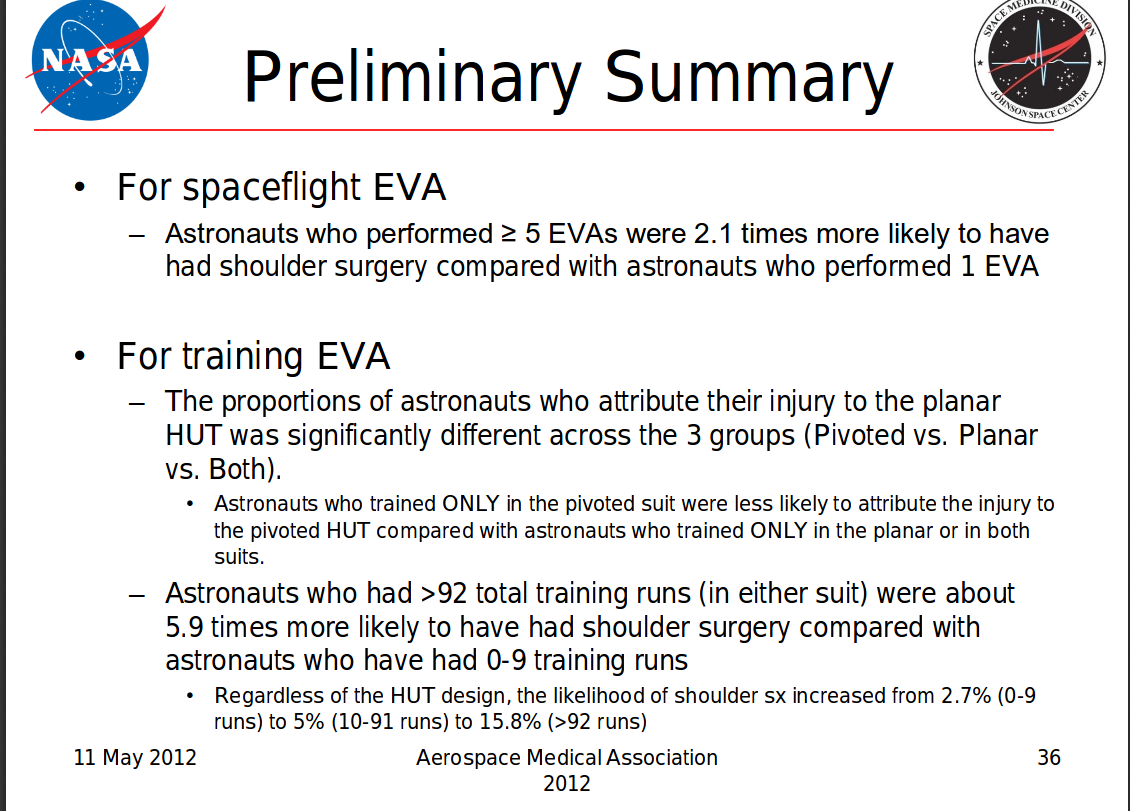Among astronauts in orbit, what is the worst real injury recorded? Has anyone hit himself on the thumb with a hammer or something? Squeezed a finger in a closing door? Gotten poisoned by some leaking experiment mystery box? I bet they haven't hurt their backs while lifting something heavy, or fell from high altitude or were run over in traffic.
So, what makes our astronauts bleed the most?
This question wants to ignore the lethal space flight events which were all related to launch or landing (or suborbital flight, including the Soyuz 18 launch abort in 1975 which gave one of the crew unspecified internal injuries). Instead it is about how humans have hurt themselves the worst while being in the orbital weightlessness of the ISS, Mir, Salyut, Shuttle and other crewed orbiting vehicles.
According to this Wikipedia list out of all the about 540 astronauts to orbit as of today since 55 years, I only find this single injury from 1995:
While exercising on the Mir EO-18/NASA 1/Soyuz TM-21 mission, astronaut Norman E. Thagard suffered an eye injury. He was using an exercise device, doing deep knee bends, with elastic straps. One of the straps slipped off of his foot, flew up, and hit him in the eye.
Fortunately, it was just a tiny discomfort:
Later, even a small amount of light caused pain in his eye. He said using the eye was, "like looking at the world through gauze."
And could quickly be cured:
An ophthalmologist at Mission Control-Moscow prescribed steroid drops and the eye healed.
Is it true that no astronaut ever was injured in space? With injury defined as for example worse than what the majority of us all experience within six months or so from everyday life on Earth (like a sprained ankle).
EDIT: I want to include illnesses here too. If any astronaut ever has gotten ill, instead of injured, by orbital spaceflight. Like having to spend two weeks nearly unconsciously in bed with high fever, like tens of millions of people do right now. Everyday Earthly stuff like that, has any astronaut ever suffered from something like that?
